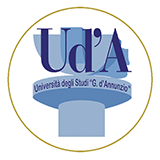Introduction
G. d'Annunzio University of Chieti, also known as the University of Chieti-Pescara, is a public research university located in the neighboring cities of Chieti and Pescara in the Abruzzo region of Italy.
Overview
Number of students: In the fall of 2016, the university had a total of 25,268 students, including 21,368 undergraduates and 3,900 postgraduates.
Number of faculty: In the fall of 2016, the university had 1,336 faculty members.
History
In 1955, the municipal and provincial administrations of Chieti and Pescara proposed the creation of a non-state university, which was formally approved by the governor of Chieti in 1960, forming the Abruzzi University Consortium.
In 1961, the Faculty of Literature and Philosophy was established at the National Archaeological Museum of Abruzzo, followed by courses in Business and Economics and Foreign Languages and Literature.
In 1963, the Organizing Committee made a formal request to establish the Free University of Abruzzi, and in 1965 In 1982, the Italian Minister of Public Education, Luigi Gui, signed a decree recognizing the Free University of Abruzzo Gabriele d'Annunzio, and the school was officially named after the writer and poet Gabriele d'Annunzio.
In 1982, the Free University of D'Annunzio became a state-supported university and opened faculties such as pharmacy, veterinary medicine and natural sciences.
Founded in 1960 as a higher education institution, it was officially recognized as an independent university in 1965.
School Strength
Teaching Staff: 1,300 More than 100 teachers and researchers are able to provide professional education and guidance for students.
Research level: All academic departments attach great importance to research, obtain research funds from national and international institutions, and conduct in-depth research in many fields. Their research results have a certain influence in Italy and internationally.
International cooperation: Actively carry out international cooperation, establish cooperative relations with many foreign universities and institutions, and provide students and teachers with rich communication and cooperation opportunities, such as cooperating with Henan University of Traditional Chinese Medicine to organize undergraduate education programs in medical imaging technology.
Institutional nature
Public university.
Educational philosophy
Focus on cultivating students' innovation ability, practical ability and cross-cultural communication ability, and strive to provide students with high-quality educational resources and a good learning environment, so that students can be competitive in the context of globalization and contribute to social and economic development.
Key laboratories and disciplines
Key laboratories: The school has many advanced laboratories and research centers, such as medical research centers, biological science laboratories, engineering technology laboratories, etc., which provide strong support for scientific research.
Advantageous disciplines: It has outstanding performance in clinical medicine, neuroscience and behavior, oncology, pharmacology and toxicology, psychiatry/psychology and other disciplines. In the US News World University Rankings, clinical medicine ranks 605, Neuroscience and Behavior ranked 299, Oncology ranked 385, Pharmacology and Toxicology ranked 274, Psychiatry/Psychology ranked 216.
Faculty
The school consists of 13 academic departments, divided into two colleges, providing undergraduate, graduate and postgraduate education, covering multiple disciplines such as architecture, economics, pharmacy, literature, medicine, psychology, mobility, mathematics, physical sciences, education, management, sociology, etc.
Ranking
2022-2023 US News World University Rankings: 935th.
TIMES Times Higher Education World University Rankings: 601.
ARWU World University Academic Ranking: 701.
Expenses
As a public university, undergraduate tuition is free, and only a small registration fee is required each year, which is about 1000-2000 The tuition fee is about 100 euros, and the specific amount varies depending on the major and course; the tuition fee for graduate students is also relatively low, and the school provides preferential policies such as scholarships and grants for outstanding students to reduce the financial burden of students.
Campus Environment
Geographic location: The main campus is located in Chieti, covering an area of 48.9 acres. There is also a branch campus in Pescara and a distance learning center in Torrevecchia Teatina. The city has a beautiful environment and profound cultural heritage, providing students with a good learning and living atmosphere.
Teaching facilities: The campus has a variety of modern teaching facilities, including teaching buildings, libraries, laboratories, gymnasiums, etc., which can meet the learning and research needs of students.
-
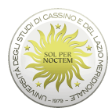
University of Cassino and Southern Lazio
-
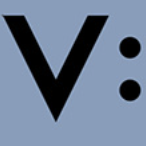
University of Campania Luigi Vanvitelli
-
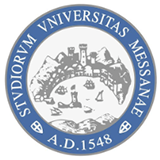
University of Messina
-
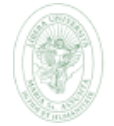
Libera Universita degli Studi Maria SS. Assunta di Roma (LUMSA)
-
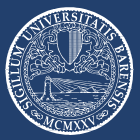
University of Bari Aldo Moro
-
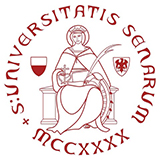
University of Siena
-
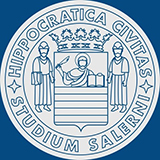
University of Salerno
-
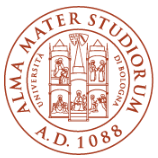
University of Bologna
-
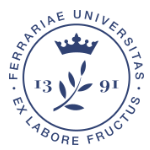
University of Ferrara
-
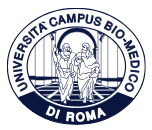
Campus Bio-Medico University of Rome
-

Mesoamerican University
-

Istmo University
-

Mariano Galvez University of Guatemala
-

Regional University of Guatemala
-

Galileo University
-

Francisco Marroquín University
-

Rafael Landívar University
-

University of the Valley of Guatemala
-

University of San Carlos of Guatemala
-

Technological Institute of Tlaxcala Plateau
-

Golfo University
-

Technological University of South Sonora
-

Technological University of Huejotzingo
-

Tizimín Institute of Technology
-

Chilpancingo Institute of Technology

